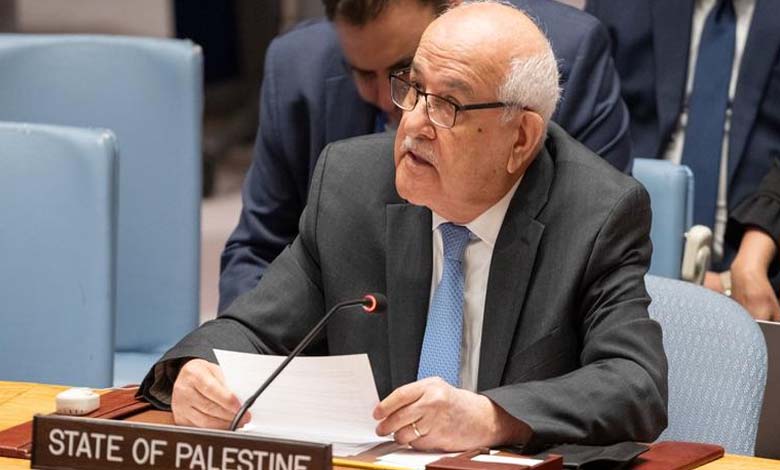A Peace Prescription for the Middle East: Will Europe Step Out of the Shadows?

Despite its multifaceted presence in the region, the European Union has rarely played more than a supporting role in resolving the Israeli-Palestinian conflict.
Over the past two decades, many European governments have come to see the two-state solution as nearly impossible, no longer worth the effort. This has led many in Europe to tacitly support Israel’s status quo while occasionally condemning its actions, according to Foreign Affairs.
-
Washington evacuates its nationals from the Middle East in preparation for any emergency
-
The Middle East Conflict Has Fueled Extremism Among Young People… How?
But Europe can no longer afford to remain on the sidelines of a conflict that reignited with Hamas’s October 7, 2023 attack and escalated with Israel’s devastating war in Gaza and rising tensions with Iran. The continent’s security is now at stake, the magazine argues.
The EU has unique insights to offer: hard-earned lessons from the 20th century on rejecting endless cycles of war and making peace with former enemies.
-
Global Protests Demand an End to the War in the Middle East
-
The Middle East on the Edge… Has the Countdown to a Broader War Begun?
While some European leaders have called for a more active role, the EU needs a coherent strategy. A set of principles—drawn from five years of attempting to coordinate fragmented Middle East policies—can help guide these efforts.
Excessive caution
Many in Europe felt that President Donald Trump was unwilling or unable to act as an effective mediator. Regardless of U.S. intentions, Europeans have a distinctive role to play. They’ve seen firsthand that, despite political demonization, most people wish to live in peace with their neighbors—though specific conditions can allow extremists to dominate.
-
40,000 U.S. Troops in the Middle East to Protect Israel
-
United States and the Middle East: A Crucial Week to Extinguish the Flames of War and Monitor Developments
Since October 7, the EU has relied on its traditional tools—economic aid and normative statements—but with caution and inconsistency. It significantly increased its aid to Gaza, pledging around $125 million for 2024 via UNRWA and the Red Crescent. Yet this support came with no strong guarantees of impact.
It also repeatedly called for a ceasefire and respect for international law, issuing statements condemning both Hamas attacks and Israel’s disproportionate responses.
-
Blinken in Middle East tour to discuss Gaza ceasefire
-
Washington prepares for escalation of conflict in the Middle East with plans to deter the Houthis
Internal divisions
However, internal rifts have weakened the EU’s impact. While some leaders cautiously support the ICC’s investigations, others—like Austria and Germany—refuse to enforce arrest warrants targeting Israeli officials.
Because member states failed to agree on revisiting the EU’s trade policy with Israel, the bloc remains its largest trade partner. As a result, the EU has been marginalized and sidelined in ceasefire diplomacy led by the U.S. and regional players.
-
Gaza War gives Russia an opportunity to strengthen its influence in the Middle East
-
Starbucks Middle East denies supporting the Israeli occupation after boycott campaigns
Untapped potential
Foreign Affairs argues that the EU’s decades-long experience in conflict resolution—based on mutual recognition and non-domination—gives it unique relevance. It also holds practical tools to shape peace efforts in the Middle East.
Europe wields enormous influence but has not leveraged it effectively. While its restraint may stem from its colonial legacy, it must act to protect its values and vital interests.
-
Wagner Group: Russia’s new headache in the Middle East – Attempts to halt operations in Syria and Libya
-
What Role Does the UAE Play in Launching an Economic Corridor Connecting India, Europe, and the Middle East?
What should Europe do?
Foreign Affairs outlines a peace roadmap:
- Leverage its untapped financial influence.
- Provide tangible support to peace advocates.
- Challenge spoilers on all sides.
- Protect those revealing facts on the ground.
-
After spreading its terrorist fingerprints in the Middle East, will the Arabs stop the Iranian threat train?
-
Its missile capabilities pose a threat to the Middle East… Iran reveals its new missile
- Support UN operations.
- Uphold international law.
- Overcome internal political divisions on Israel.
- Emphasize Europe’s interest in a stable future for Israelis and Palestinians.
- Design and fund an international transitional authority for Gaza.
- Hold violators accountable for damaging EU-funded infrastructure in the West Bank and Gaza.
-
US efforts to persuade Middle East allies to deploy drone ships to confront Iranian threats
-
United States kills ISIS leader in Syria responsible for terrorism in Europe and the Middle East
- Reduce Gaza’s aid dependency and raise reconstruction standards.
- Use its green construction expertise to rebuild Gaza.
- Oppose any attempts at forced displacement or annexation of Palestinians.
- Invest more effectively in civil society organizations promoting peace.
- Highlight grassroots Israeli and Palestinian peace efforts.
-
Terrorism evolution.. Iran’s missiles threaten the future of the Middle East
-
Iran is using negotiations with the West to expand its sphere of influence in the Middle East
- Firmly reject Israel’s proposed 80% tax on foreign aid to peace NGOs.
- Support a “Peace Assembly” of randomly selected Israeli and Palestinian citizens.
- Promote the free flow of factual information.
- Defend the independence of international courts.
- Remove visa exemptions for Israeli settlers.
-
US attempt to salvage Yemen truce… Linderking on Middle East tour
-
Is America Starting to Regain a Role in the Middle East?
- End discriminatory visa policies that target only Palestinians.
- Combat digital echo chambers by regulating social media algorithms.
- Reconsider the EU-Israel Association Agreement from 2000.
- Suspend high-level summits and Erasmus+ participation if needed.
- Temporarily revoke Israel’s preferential trade status to send a strong political signal.












